
The AI app builder market is experiencing explosive growth, with the low-code/no-code platform market projected to reach $187 billion by 2030. As businesses embrace AI-powered development tools, finding the right platform becomes crucial. While Bolt has gained popularity for prompt-to-app capabilities, several powerful alternatives offer unique advantages for your specific needs.
Understanding what defines an exceptional AI app builder helps make informed decisions. Key factors include production-ready code generation, ease of use for non-technical users, integration capabilities, mobile-first architecture, and offline functionality. The global no-code AI platform market shows 70% of new applications will use low-code or no-code technologies by 2026, up from less than 25% in 2020.
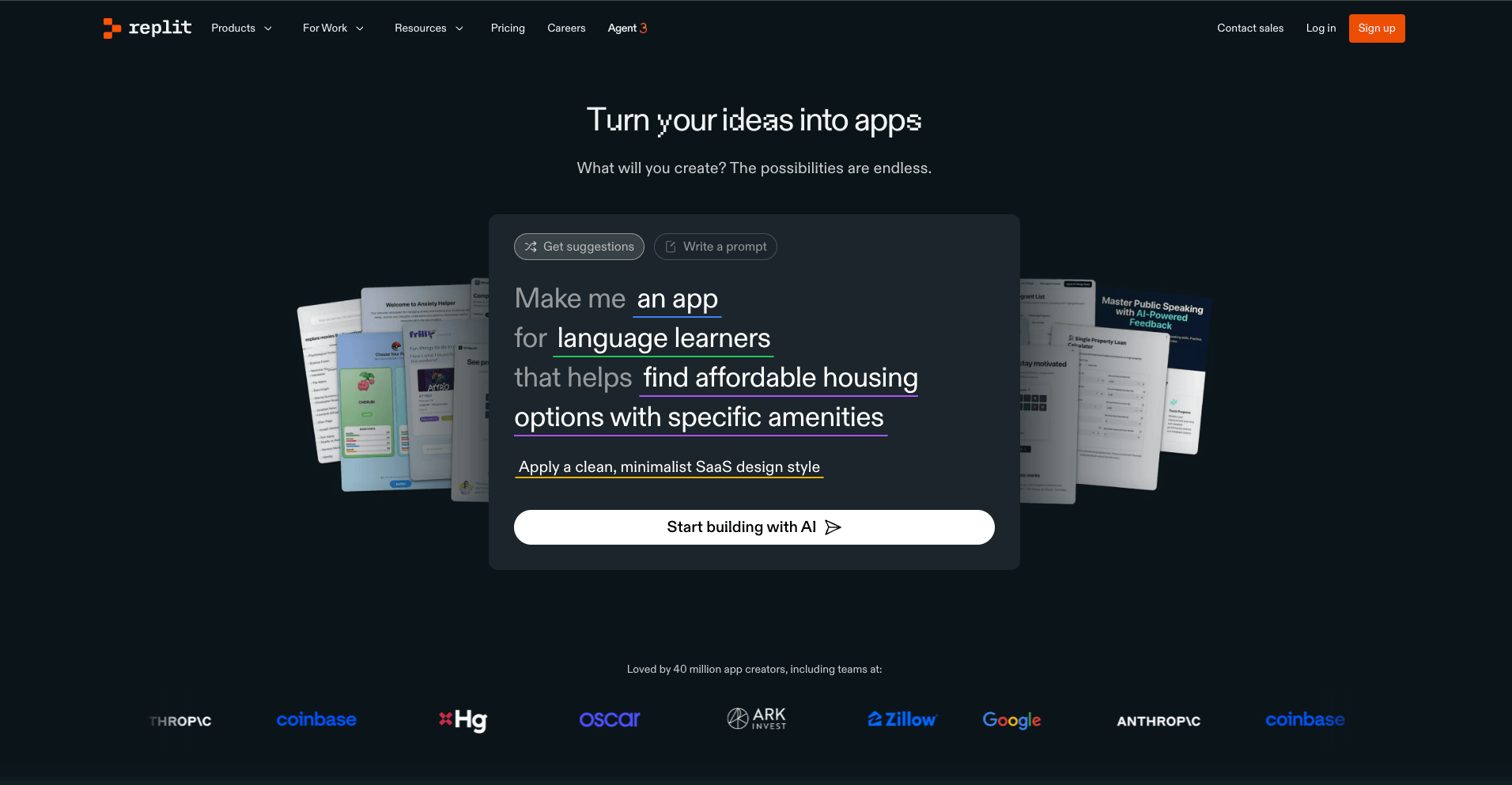
Replit Agent stands as one of the most comprehensive AI-assisted coding platforms, combining AI capabilities with powerful collaboration features. The platform excels at full-stack web application development, offering integrated hosting, version control, and real-time multiplayer editing.
The October 2025 Agent 3 release introduced Dynamic Intelligence featuring extended thinking capabilities, high-power model options, and integrated web search for complex debugging. Replit provides an in-browser IDE with instant deploys, package management, and an AI agent that writes and tests code in context.
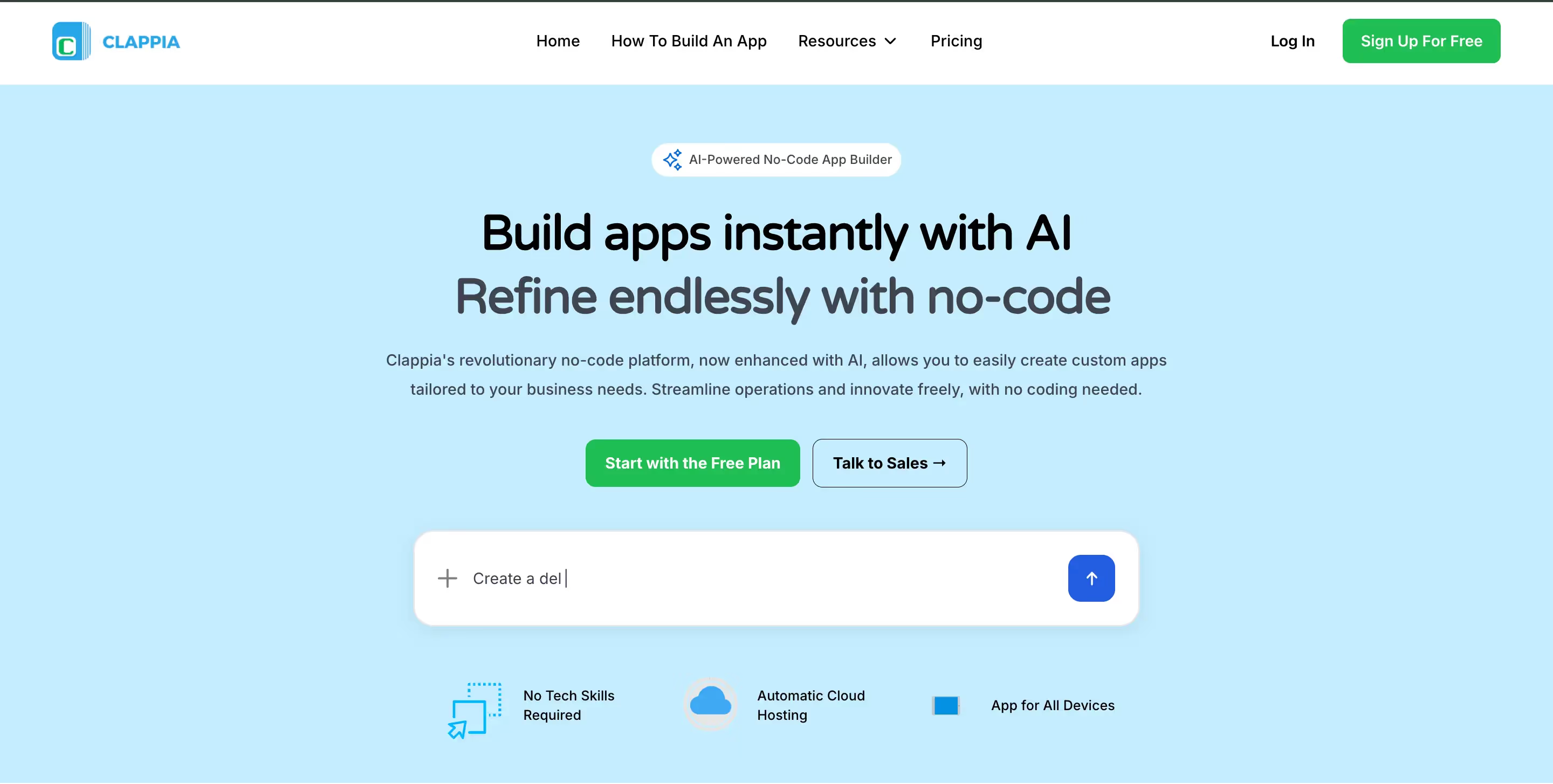
Unlike traditional AI app builders focusing on web applications, Clappia stands out as a comprehensive mobile-first platform with AI-powered app generation. The platform offers prebuilt components allowing users to build actual functioning apps through prompt-based generation, then modify them visually without touching code.
Clappia's unique advantage lies in its production-ready infrastructure. After AI builds the app based on your prompt, you visually see the actual working application and adjust fields by drag-and-drop or direct clicking. This eliminates code navigation complexity that tools like Bolt require, making it accessible for non-coders while maintaining enterprise-grade security and scalability.
The platform includes advanced features like GPS tracking, offline functionality with automatic sync, geofencing, NFC support, and live tracking—capabilities rarely found in traditional code-first AI builders. Clappia's workflow automation enables complex business logic without programming knowledge.
Pricing starts at $6 monthly for the Starter plan. The free plan offers lifetime access to unlimited apps, up to 100 users, 400 submissions monthly, 400 workflow step executions, live tracking, PDF configurations, Google Sheets integration, mobile apps, WhatsApp and SMS messaging, 1000 monthly REST API calls, and AI usage credits.
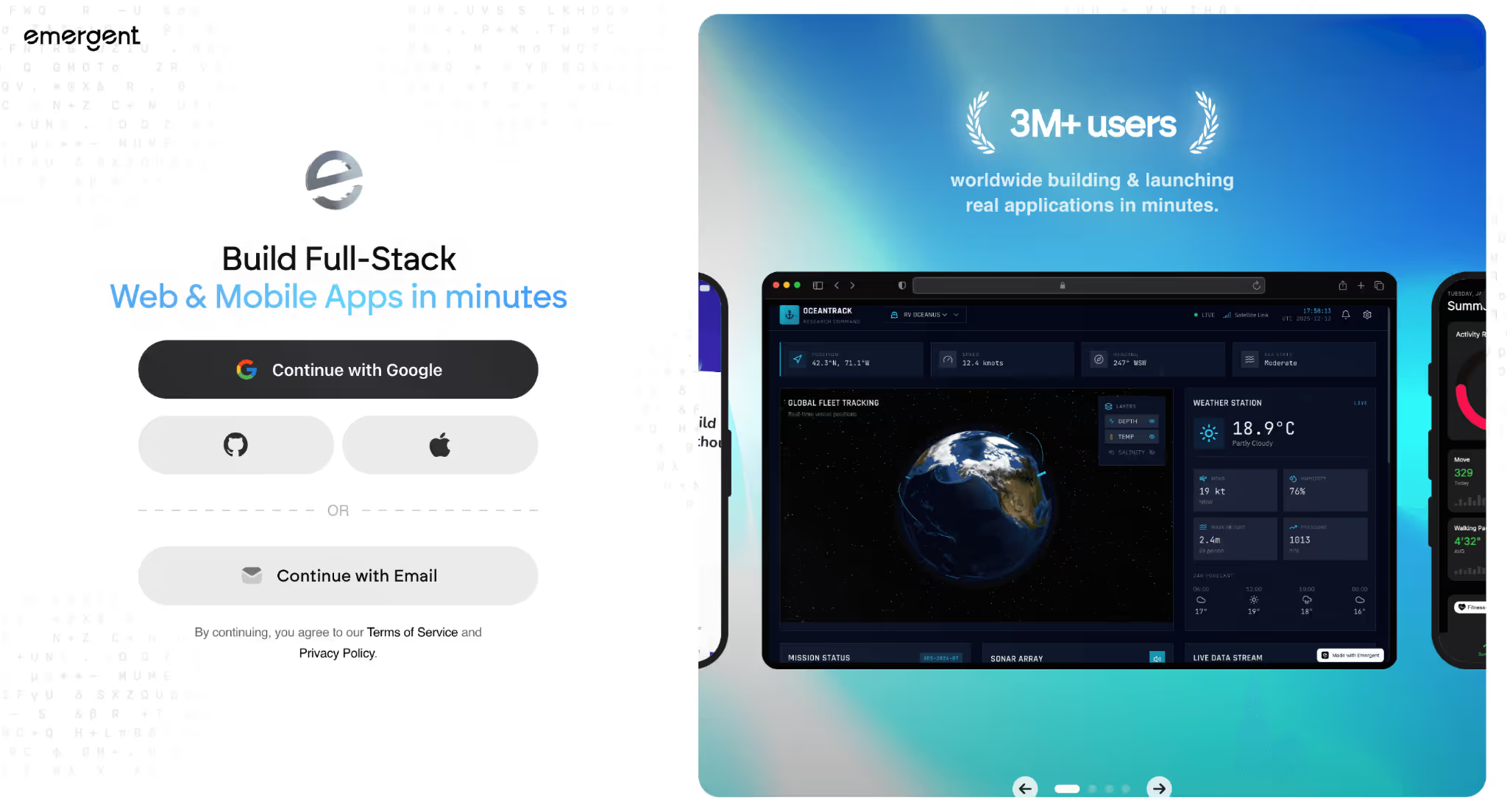
Emergent is an AI-powered full-stack development platform that allows users to build applications using plain English instructions. The platform uses a multi-agent AI system to interpret user prompts and generate the frontend, backend, database models, API routes, and deployment configuration automatically. This enables users to move from idea to working application without manually writing boilerplate code or setting up infrastructure. It is designed for rapid creation of production-ready applications, while still allowing teams to inspect or extend the generated code if needed.
The platform includes features such as hosted deployments, managed databases, authentication, environment variables, and external API integrations, all accessible through a unified interface. Its pricing plans include a Free tier, a Standard plan at $20/month, and a Pro plan at $200/month. These options give users flexibility in choosing a plan based on the scale and complexity of the apps they intend to create.
Emergent works well for teams and creators exploring AI-driven full-stack development, especially when they want to iterate quickly on new ideas or build functioning prototypes without managing infrastructure manually. Its natural-language driven workflow reduces the need for deep technical setup, while still offering the option to work with generated code for advanced customization. This combination makes it suitable for a wide range of projects, from early-stage product concepts to fully deployed applications that evolve over time.
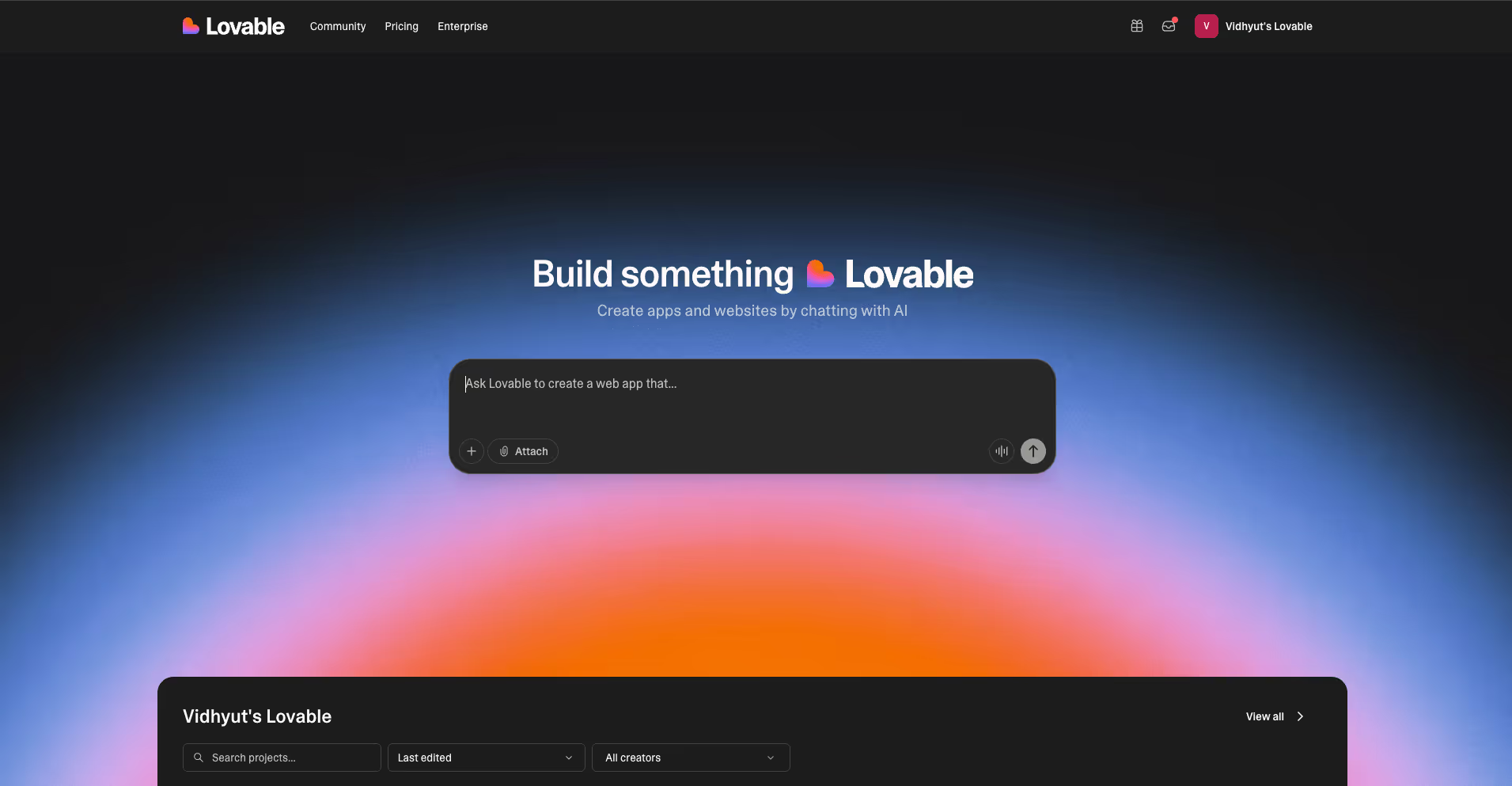
Lovable focuses on creating emotionally engaging, user-friendly digital experiences. Unlike tools that simply assemble components, Lovable uses AI to craft apps prioritizing brand, UX, and beautiful interfaces. The platform functions like a hybrid designer and developer, perfect for brand-centric applications or MVPs requiring exceptional visual appeal.
The platform offers guided AI app building with iteration clarity, providing fast paths to MVP without losing developer ergonomics. Lovable integrates with GitHub, Figma, and various APIs, allowing seamless deployment to GitHub Pages, Netlify, or custom hosting. Pricing starts at $25 monthly for the Entry Plan with 2.5 million tokens, full-stack builder access, and version history.
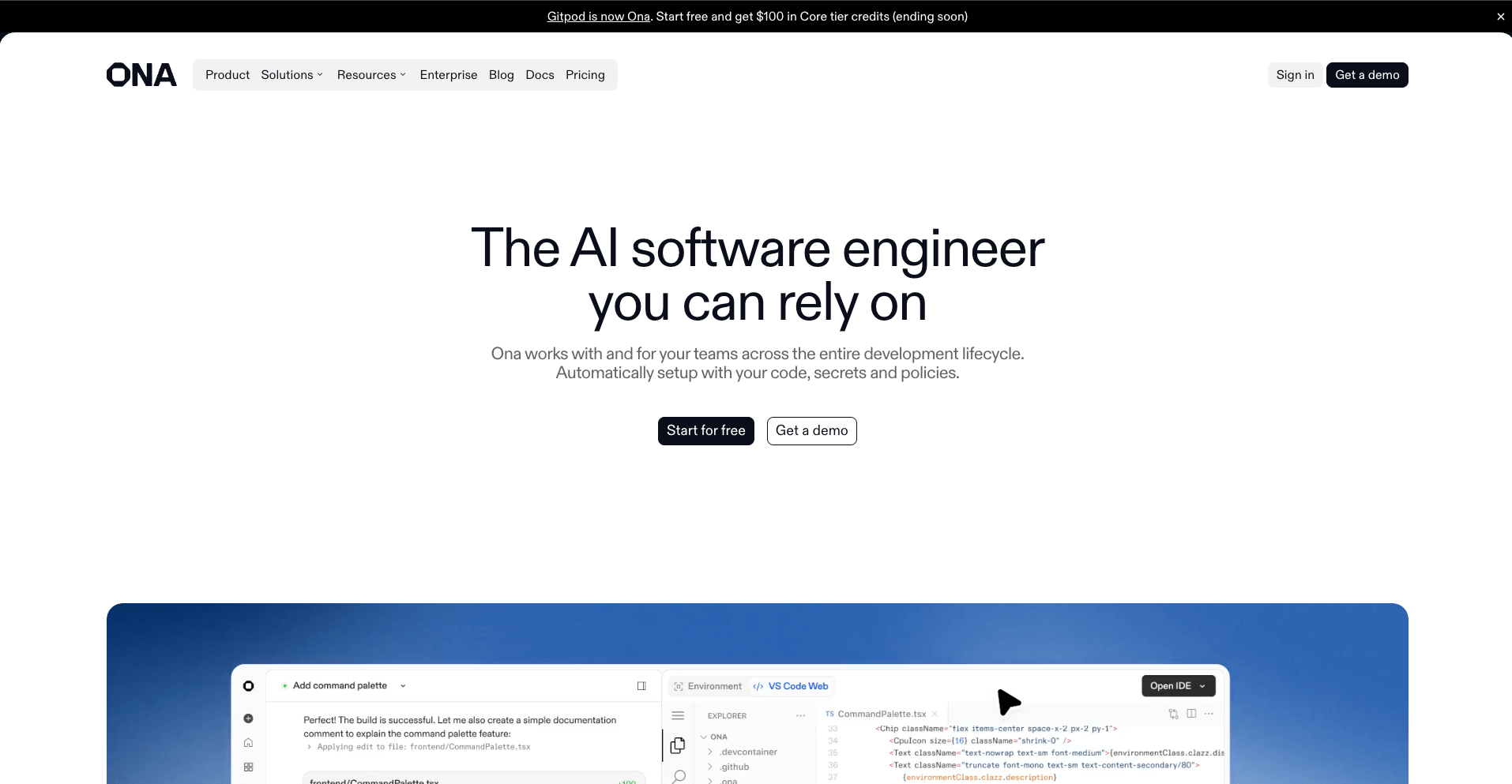
Ona, formerly known as Gitpod, has evolved from a cloud-hosted development environment into a comprehensive AI agent platform for professional software engineering. The platform serves over 2 million developers and recently secured major enterprise contracts with leading financial institutions across America, Europe, and Asia.
The platform provides sandboxed, ephemeral development environments with full OS-level isolation. Ona runs Visual Studio Code directly in the browser while supporting seamless transitions to desktop IDEs including VS Code, Cursor, Windsurf, JetBrains IDEs, and Zed through extensions.
Ona's AI agents operate with complete codebase context, knowledge bases, and issue trackers, enabling autonomous parallel work. The platform offers three operational modes: autonomous mode where agents write code without manual approval, assisted mode where agents propose changes with full visibility, and manual mode providing targeted suggestions requiring approval.
The platform runs either in multi-tenant cloud with US and Europe regions, or on AWS VPC for organizations requiring enhanced control. Enterprise guardrails include short-lived access to cloud resources, command deny lists, comprehensive audit logs, organizational permissions, and SSO/OIDC integration.
Ona employs Ona Compute Units (OCUs) as the pricing mechanism. The free tier provides pre-configured environments with 4 cores, 16GB RAM, and 80GB disk storage. The Core plan includes at least 80 OCUs monthly with additional units starting at $10 for 40 OCUs. Creating a new web application typically consumes 4 OCUs, while adding features to medium-sized projects costs approximately 8 OCUs.
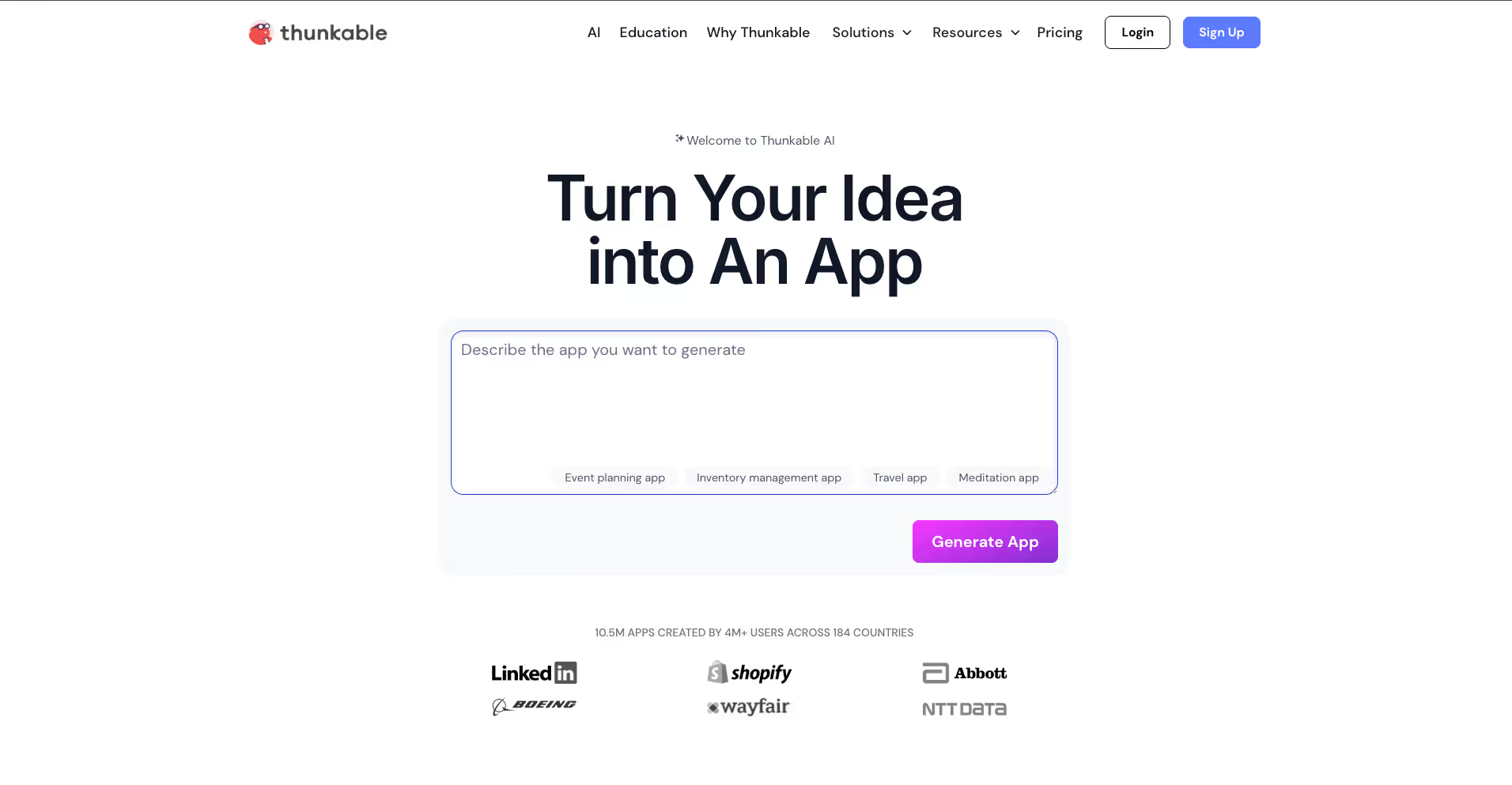
Thunkable specializes in creating native mobile apps for iOS and Android using drag-and-drop interfaces combined with AI assistance. The platform enables beginners to create apps with AI assistance without extensive programming knowledge. Cross-platform capabilities allow building once and shipping to any device.
The platform integrates with Google Analytics, Clicky, Mixpanel, AppsFlyer, and Facebook for built-in tracking. Monetization support includes Stripe and PayPal integration for payments, RevenueCat for in-app purchases and subscriptions. Usage-based workload units pricing provides cost efficiency with free prototyping plans.
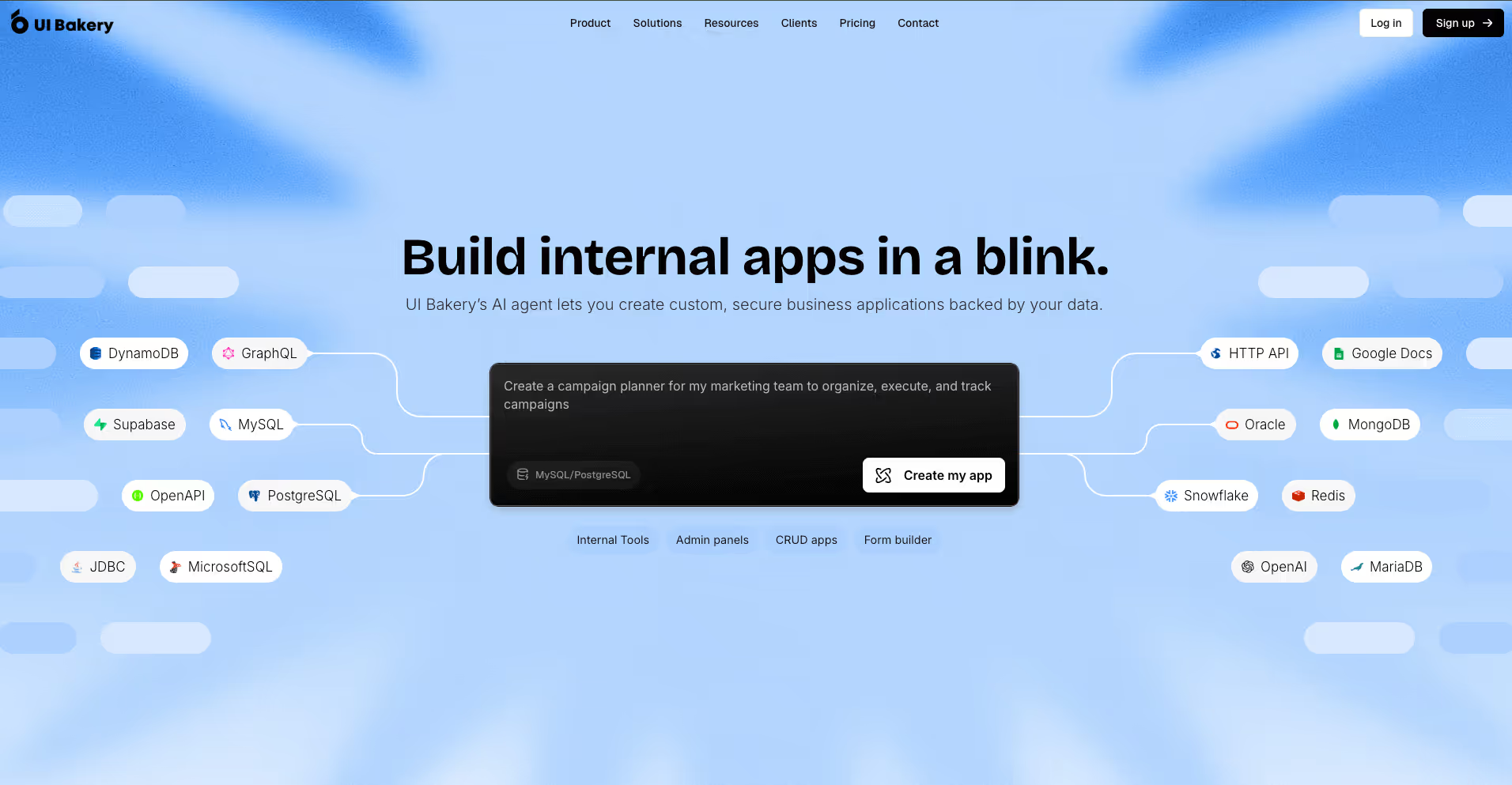
UI Bakery's AI app generator blends low-code development with AI-powered scaffolding. Users describe app layouts or functionality in natural language, and UI Bakery generates responsive UIs with ready-made components. The platform proves especially strong for apps connected to APIs, databases, or authentication systems.
UI Bakery combines no-code UI with AI accelerators, connecting to databases and APIs while emphasizing enterprise needs including authentication, role-based access control, and audit capabilities. This makes it ideal for replacing manual dashboards quickly and building internal tools with proper data governance.
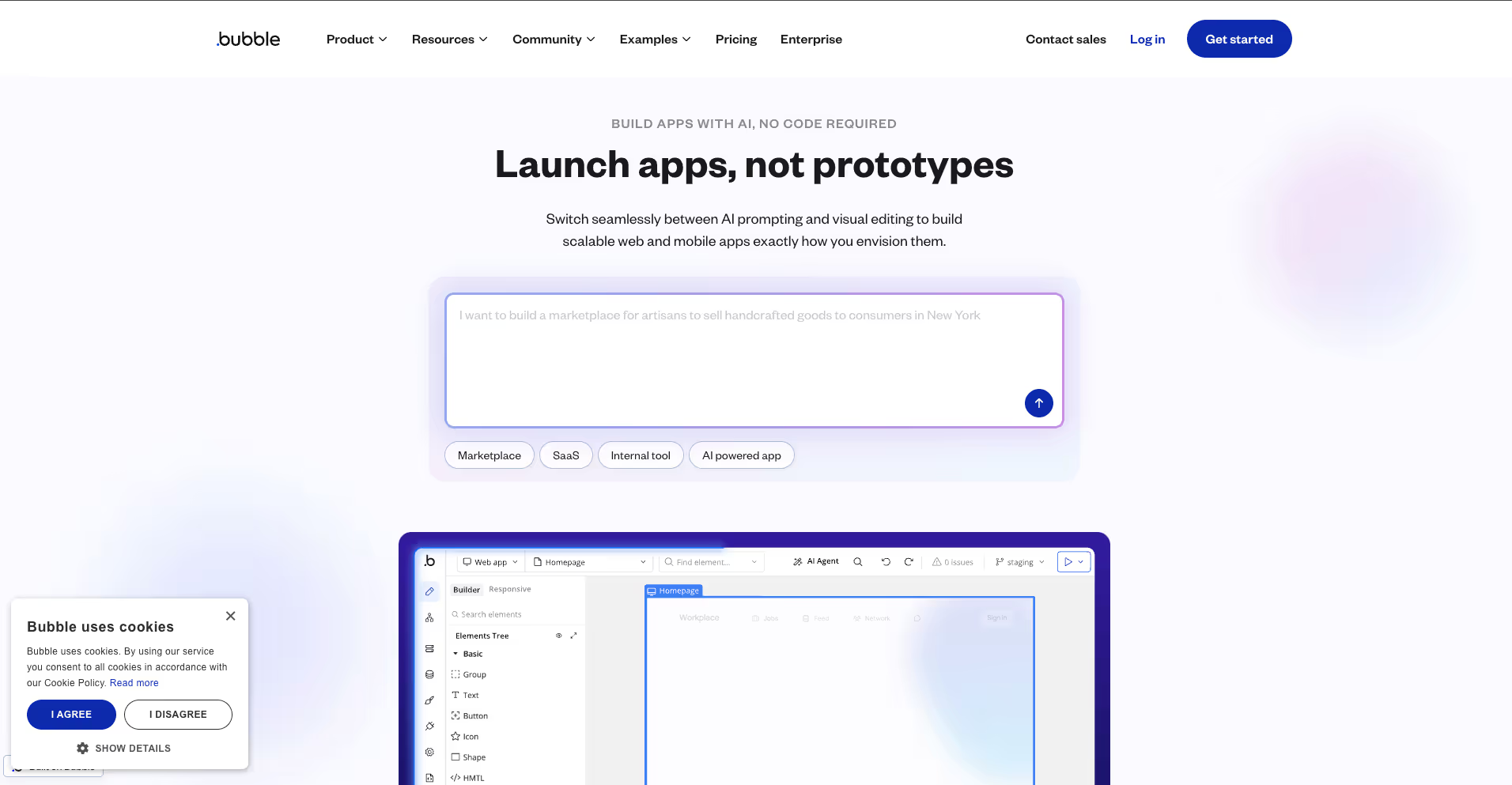
Bubble is a powerful no-code platform for building sophisticated web applications including marketplaces, social networks, SaaS products, and internal tools. The platform offers full-stack capabilities with flexible visual interfaces, robust built-in databases, and extensive integration options. While originally web-focused, Bubble now offers native mobile app builder functionality.
The platform is SOC 2 Type II compliant, penetration-tested, GDPR compliant, and includes data encryption. Designed for millions of users with automatic scaling, Bubble's Enterprise plan provides maximum scale. The platform is primarily no-code but supports low-code extensions with custom code and APIs.
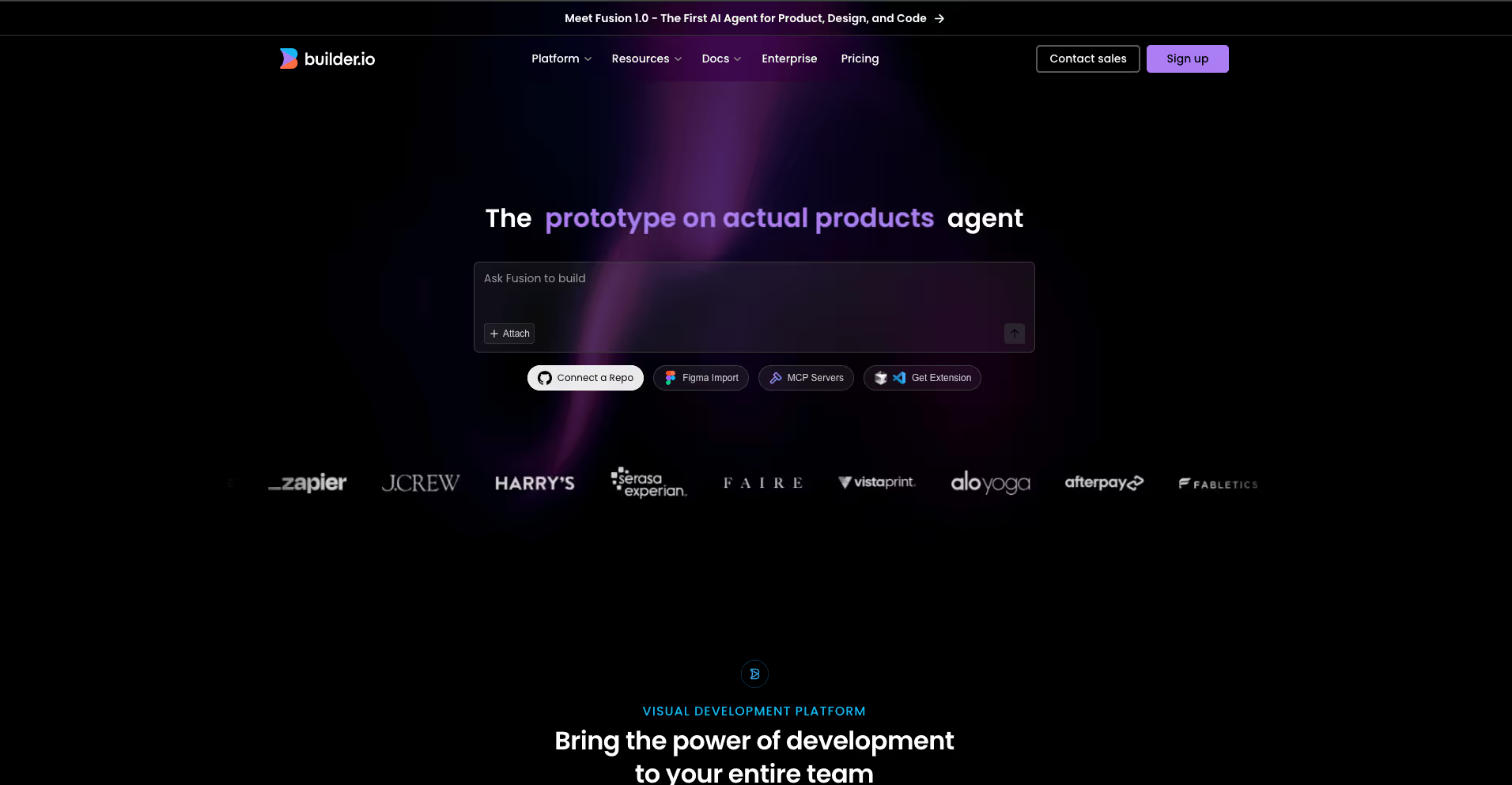
Builder.io specializes in visual development with a headless CMS approach, allowing teams to build and optimize digital experiences. The platform converts designs into clean, production-ready code and integrates seamlessly with existing codebases and frameworks.
The fundamental distinction between these platforms lies in their app building approach. Traditional AI builders like Bolt and Replit generate code that users must understand and modify, creating challenges for non-technical users and long-term maintenance risks. Even after successfully building and launching apps with substantial user data, making small updates can cause significant risks without coding expertise.
Clappia's no-code approach with prebuilt, secure components solves this problem. The AI organizes and arranges field types properly, but users interact with actual working apps through visual interfaces. Every component is pre-built with enterprise-grade security, eliminating data risks from code mistakes. The platform includes offline features, automatic data synchronization, and mobile-first architecture that code-first platforms struggle to match.
Selecting the right AI app builder depends on specific requirements. Developers who care about code longevity, test coverage, and CI/CD processes may prefer Replit's code-first approach. Product-minded builders wanting rapid momentum benefit from Lovable and Bolt's speed.
However, for businesses seeking production-ready mobile-first applications without coding complexity, Clappia provides unmatched value. The combination of AI-powered app generation, visual modification capabilities, advanced mobile features including GPS tracking and offline functionality, and enterprise-grade security at remarkably affordable pricing makes it ideal for organizations digitizing operations.
The low-code development platform market reached $28.75 billion in 2024 and projects to reach $264.40 billion by 2032, growing at 32.2% CAGR. With 84% of businesses leveraging these solutions to fill developer shortage gaps, choosing the right platform impacts organizational success significantly.
Start building apps with just a prompt—no coding required. Try Clappia free today.
 Get Started – It’s Free
Get Started – It’s Free
L374, 1st Floor, 5th Main Rd, Sector 6, HSR Layout, Bengaluru, Karnataka 560102, India

3500 S DuPont Hwy, Dover,
Kent 19901, Delaware, USA


3500 S DuPont Hwy, Dover,
Kent 19901, Delaware, USA

L374, 1st Floor, 5th Main Rd, Sector 6, HSR Layout, Bengaluru, Karnataka 560102, India



.jpg)

resized.jpg)

.jpg)